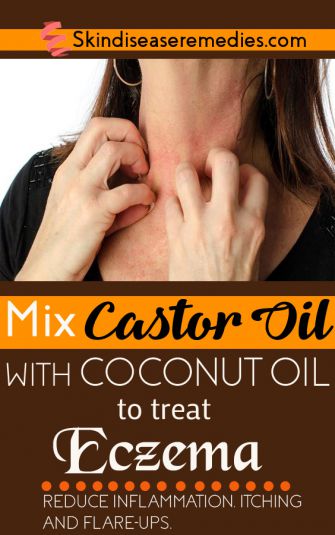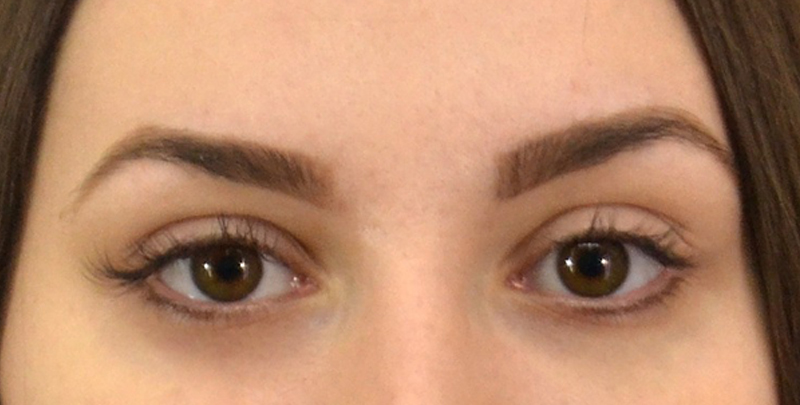
Inflamed red patches, blisters, and rough skin are common signs of eczema. Using castor oil for eczema helps to soothe these itchy patches.
Apart from rigorous itching, eczema is accompanied by depression and social isolation. Words can’t explain the embarrassing feeling to scratch at public places.
Fortunately, you can get relief from this restless itching with castor oil.
You may wonder why to use natural remedies when there are a bunch of cosmetic creams available?
I personally used steroid creams and they showed effective results. But itching triggered within weeks. Apart from this, chemical ingredients in the product strip natural moisture.
Is Castor Oil Good for Eczema?
Now, the question arises about this folk remedy.
Before you jump to see its nutritional profile, let me clear that castor oil can’t permanently treat eczema. Actually, there is no cure for this chronic ailment.
Natural remedies like castor oil and steroid creams help to reduce the symptoms of eczema.
- Ricinoleic acid is believed to be the active component in castor oil. It exhibits anti-inflammatory properties and can efficiently relieve from pain.
- Undecylenic acid residing in this oil thwarts infectious bacteria and fungi.
- Healing ability of castor oil fastens the healing process of the inflamed
- Fatty acids packed in it lock moisture over the skin and refrain itching.
- Regular massage with this folk remedy helps to reduce scars and lighten the appearance of eczema flare-ups.
- Assorted nutrients in it enhance collagen production and make your skin supple.
- Castor oil is crammed with omega-3 fatty acid that stimulates healthy tissue growth and hydrates your itchy skin.
- Antioxidants, vitamin E, antiviral, antibacterial and other minerals are packed in castor oil.
- Its astringent ability removes dirt from skin pores and avoids acne break-out.
Nutrients in this sticky oil not just reduce eczema symptoms it can make your skin well hydrated, wrinkle-free and radiant.
However, you may not like its smell. It’s recommended to apply rosewater after washing your skin.
How to Use Castor Oil for Eczema
To make your homemade recipe effective, experts recommend blending it with other natural ingredients. Below listed are different methods, choose the one that goes well with your skin.
#1. Castor Oil and Sweet Orange Essential Oil
Orange essential oil is prominent for high amount of vitamin C that promotes collagen production, heal skin, reduce wrinkles and fade dark spots.
Antioxidant ability of this essential oil thwarts free radicals and protects your skin from harmful UV rays. Experts recommend diluting it with carrier oil before using it topically.
- Dilute 1 tbsp of orange essential oil with 1 tbsp of castor oil.
- Wash affected skin with water and pat dry.
- Gently massage with mixed oil and leave it to dry naturally.
Note: Patch test before applying it on the skin.
#2. Castor Oil to Treat Eczema
- Wash eczema affected skin with water to remove impurities and dirt piled over the skin.
- Pat dry with a soft cloth.
- Take required amount of castor oil and apply it over the inflamed skin.
- Use cotton swab if necessary.
- Wrap the skin with an old cloth if needed.
You can optionally, apply rosewater or moisturizer after washing castor oil to get rid of its odor.
#3. Coconut Oil and Castor Oil
Nutrients in coconut oil include capric acid, caprylic acid and vitamin E and K, which reduce inflammation, restrain infection and prevent itching.
Hydrating ability of this home available oil penetrates deep into the skin and locks moisture. Fatty acids housed in coconut oil help to restore outer layer of the skin.
- Blend 1 tablespoon of castor oil with 1 tablespoon of coconut oil.
- Gently apply it over prewashed skin.
- Leave it to dry overnight and rinse it off in the morning.
#4. Castor Oil and Olive Oil
Vitamin E, omega-3 fatty acids and other nutrients in olive oil reduce eczema inflammation, soothe flare-ups and lock moisture over the skin.
Its antibacterial property helps to restrain infectious bacteria from the skin. Nutrients in olive oil penetrate deep into the skin and nourish outer layer of the skin.
- Mix 2 tablespoon of castor oil with 1 tbsp of olive oil.
- Cleanse your skin with water and pat dry.
- Avoid scratching and be gentle.
- Using your clean fingers apply mixed oils over the skin and allow it to dry naturally.
- Apply rose water to get rid of the foul
#5. Castor Oil and Almond Oil
Vitamin A, antioxidants, anti-inflammatory and hydrating abilities are housed in almond oil. These nutrients help to reduce inflammation, prevent itching, exfoliate skin, restrain ailment and moisturize eczema patches.
- Take a bowl and add ½ cup of castor oil, ½ cup of almond oil and optionally add 1 tsp of camphor oil.
- Mix thoroughly and apply it over prewashed skin.
- Allow it to be on your skin overnight and then rinse it off in the morning.
#6. Castor Oil and Grapeseed Oil
Linoleic acid residing in grapeseed oil is renowned to hydrate and heal inflamed eczema patches.
Vitamin C, E, and omega-6 fatty acids promote collagen production, lighten the appearance of wrinkles and protect epidermis.
- Add 1 tablespoon of castor oil and 1 tbsp of grapeseed oil to a bowl.
- Optionally add 2 drops of tea tree oil, neem oil and lemon grass oil to the bowl.
- Wash your face with water and pat dry.
- Apply the mixed solution over the skin and leave it to dry naturally.
#7. Castor Oil and Jojoba Oil
Jojoba oil has identical properties to your natural oil sebum. Hydrating properties of this liquid wax moisturize inflamed patches.
Antibacterial and antioxidant activity of jojoba oil help to thwart infectious bacteria and free radicals. Its healing ability soothes eczema flare-ups.
- Mix 3 teaspoons of jojoba oil with 1 teaspoon of castor oil in a bowl.
- Wash your eczema affected skin with water and pat dry.
- Gently apply the oil over affected part and leave it to dry naturally for 15-20 minutes.
- Rinse it off with water and optionally apply rosewater.
#8. Castor Oil and Sunflower Oil
Topical application of sunflower oil helps to retain lost moisture and reduce inflammation of eczema flare-ups. It also restrains bacterial infection and relieves itching.
- Add 3 teaspoons of castor oil to 7 teaspoons of sunflower oil.
- Mix thoroughly and apply it over prewashed face.
- Leave the oil to dry naturally and then rinse it off with water.
#9. Castor Oil and Tea Tree Oil
Like other natural ingredients, tea tree essential oil is packed with anti-inflammatory, antiseptic and anti-bacterial abilities.
It’s hydrating ability helps to soothe itching and fasten the healing process.
- Add few drops of tea tree oil to a ½ tablespoon of castor oil.
- Also, mix 1 tablespoon of jojoba oil to it.
- Warm the mixed oils in the microwave and apply it over prewashed skin.
- Leave the oil overnight and the rinse it off in the morning.
How to Make and Use Castor Oil Packs?
Castor oil packs are nothing but to put few drops of castor oil on a piece of cloth and place it over the skin with a heat source.
Traditionally, castor oil packs are used on various parts of the body including abdomen (to help the liver and digestive system), lower abdomen and on joints. (Source)
Tips on Using Castor Oil for Eczema
- Wash the affected part with water before applying the recipe.
- Patch test before applying any of the above-mentioned
- Avoid using ingredients that may trigger an allergic
- Avoid scratching or rubbing over the inflamed patches.
- Food that may trigger eczema flare-ups must be avoided.
- Pregnant women are advised to consult a physician to before trying these recipes.



Hi, I noticed in your recipe above #7 (castor oil/jojoba oil) that you say to rinse off after about 20 mins. Could I leave it on all day and reapply in the evening? I want to start using castor oil for my nummular eczema but not sure if I should dilute, as it is so thick. This is the first site I have found online that addresses any type of dilution or mixing it with a carrier oil. Thanks for any info in advance.
Allison
You can use castor oil undiluted.
I personally used castor oil on your skin and I never experienced any side-effects.
Initially, check with few hours then if it goes well with your skin, you can allow it on your skin till evening.